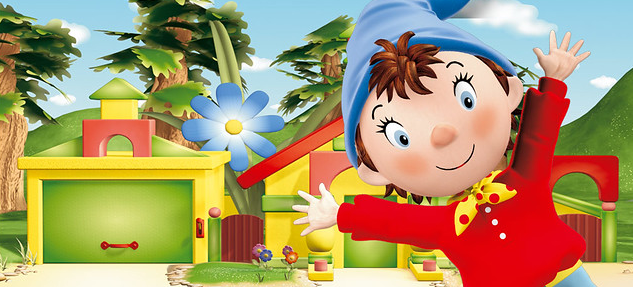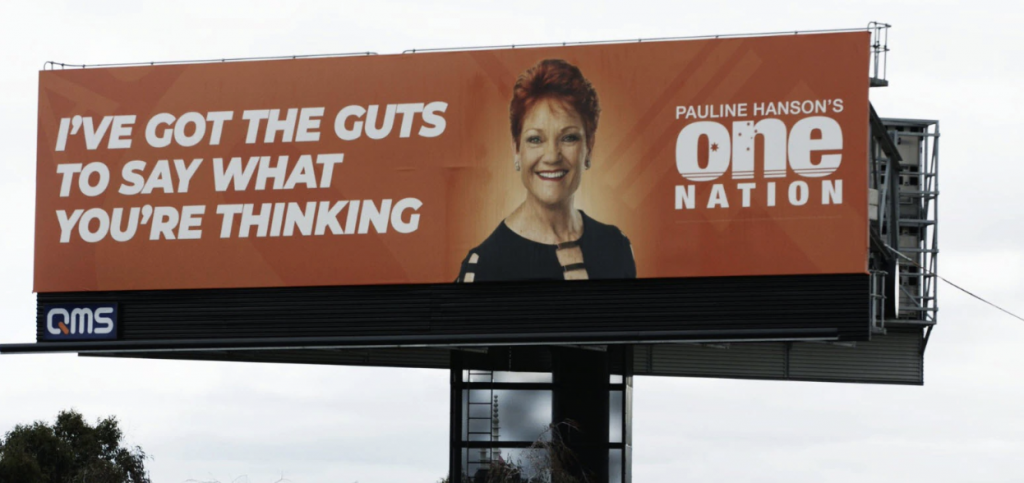That playful little elf Noddy turns 70 this year. That’s right, the very first edition of Noddy in Toyland was released in 1949 and it has been a global hit ever since. But his longevity does not suggest he hasn’t been subject to controversy.
When I was growing up in the 1980s we had full politically incorrect Noddy; the bad guys were golliwogs (who were black and had frizzy hair, but who were also on the tins of marmalade in the fridge). The teacher spanked children who were naughty, and shock of all shocks Noddy and big ears had regular sleep overs, sometimes felt queer in the tummy, and enjoyed a gay old time.
I remember the moral panic when the meaning of the words “gay” and “queer” became clearly associated with homosexuality and the rush to push out new “politically correct” editions that not only made the relationship between Noddy and Big Ears more certainly platonic but also cleaned up the issue of the golliwogs and the slap happy teacher.
In the late 80’s and early 90s political correctness required airbrushing out racism, and hiding homosexuality from impressionable children. Skip forward a couple of decades and we see JK Rowling being in the middle of a similar storm of outrage for the sexuality of one of her fictional creations. Although now the problem is not that a character is gay, it is that he is not gay enough. You see, although Dumbledore is gay, there is no gay sex in any of the Harry Potter books. Rowling has been accused of cultural appropriation and making tokenistic and offensive inclusion of a gay character without fully exploring the impact his homosexuality has had upon him. As I type, the internet is warming itself up into a fit of indignation about the sequel to ‘Frozen’ and the possibility that Elsa will be confirmed as gay in this movie and whether this is an offensive tokenistic gesture.
So in 30 years, the “correct” thing has changed from censoring art that contains homosexuality, to censuring art that doesn’t have enough homosexuality. This is almost a complete 180-degree turn within my lifetime. I am not interested in writing about the merits or otherwise of imposing our cultural values on art and popular culture, but I am interested in the effect this has on individuals.
How do people keep up with this level of change? In my lifetime I have seen the dominant economic ideology move from protectionism to free trade. I have seen dietary advice go from supporting processed food because they had all the nutrients you need to whole foods because the processed food is bad, and I have seen child-rearing go from “chickenpox parties” so all the kids got it out of the way early, to these diseases being on a national register and there were media alerts if someone has been somewhere during a contagious phase of the illness.
Now I assume that all of these changes are for the better. That free trade raises everyone’s standard of living and improves efficiency which gives us all cheaper better stuff, that whole foods are actually better for you than the processed stuff because nature has been playing this game longer than Nestle or Monsanto, and that the epidemiologists tracking communicable diseases know what they are doing, but do i know ?
Not really, how could I possibly have an informed opinion on all of these issues (as well as the hundred other issues that clog my newsfeed every day).
So in the absence of informed opinions, how does the human brain make decisions? Easy, it takes shortcuts. When the brain is overloaded, it falls back on stereotypes to help with decisions.
- That scientist is wearing a lab coat, she probably knows what she is talking about
- That politician is wearing a high vis vest and drinking beer at the pub, He’s probably a really down to earth bloke
- That protester has dreadlocks, I bet she doesn’t have a job
- That businessman looks smarmy I bet he is running a scam.
This is precisely where we are at as a public at this point in time. Each of us probably has a few issues we care about deeply (be they veganism, or child protection, or climate change). Many of us feel that the things we care about are not going in the direction we think they should (why bother caring about something that is going right). So we have all become activists; in what we share on facebook, in what we “like” on youtube in the very way we navigate the web and create big data vapour trails that can be used to inform influencers on how best to reach us.
In this cacophony of white noise which we both create and consume, the poor human brain is just trying to make sense of all the images and messages. Most of us don’t want to argue with that friend of a friend online who believes the moon landings we staged, so we just sit back and let it all wash over us.
As these ideas briefly occupy our conscious reasoning, most are rejected quickly. Ironically enough by the same mental shortcut of stereotyping. Unless we are already predisposed to conspiracies, that youtube video about how 9-11 was really a false flag operation probably won’t occupy your thoughts for long as we go scrolling for unboxing videos. But when we do stumble across pieces of information that agree with our existing mental short-cuts, another cognitive distortion comes into play; confirmation bias.
Take an example like Donald Trump. If he already exists in your mental shortcut folder as a blustering buffoon, then even the slightest word stumble shared in a meme will serve to reinforce your view, and close your mind to any information that suggests the contrary. Similarly, if you see him as a visionary leader who doesn’t play by the rules and gets things done then the scorn with which he is viewed by those with the first bias serve to reinforce your view that the elites of the world are completely unfairly set against him.
Where this becomes dangerous is that everything I have described above is well known and understood by influence peddlers. They view their job as pandering to your worst prejudices while leading you down a rabbit hole of gradually self-fulfilling beliefs that align with their world view.
Globally, we are seeing a rise in populism. The definition of a populist is someone who tells people things that they already believe. Somewhere in the parts of our psyche that we don’t like to talk about most of us have some pretty uncharitable thoughts, be they racist, sexist, homophobic or secret fascist fantasies we all have a very slight tendency to suspect that people who aren’t quite the same as us are somehow trying to get one over on us.
The populist gives voice to this fear and depending on which flavor populist will place all the ills of the world at the feet of Muslims, or Transnational corporations or transexual teens. While we are bombarded with change and bombarded with information we don’t tend to subject these claims to the scrutiny they deserve and so we come to accept the populist as truly representing us
However, leadership is when someone is able to energise people to think in a more sophisticated way about real problems and to step outside of their prejudices to make sacrifices for a big picture that a leader has inspired them is worthwhile.
While leaders simply pander to our prejudices and biases, we remain subject to these biases and never evolve or thought or change our mind.
So what do we do as individuals to combat this growing trend of populism? Can I suggest empathy? Not the soft warm and fuzzy type of empathy, but the acceptance that other people believe different things to us and often they aren’t idiots. Whatever the set of issues are that you care about most, try subscribing to a YouTube channel of someone who believes the opposite. You might not change your mind (and I hope you don’t, but you will definitely get a more nuanced understanding of the issue, discover things you didn’t know and hopefully become less susceptible to people using your values to sell you theirs.


